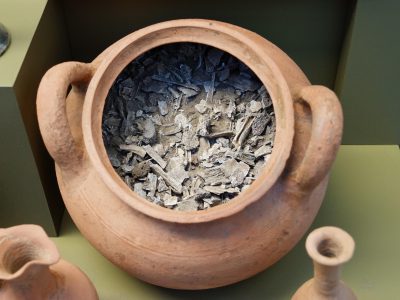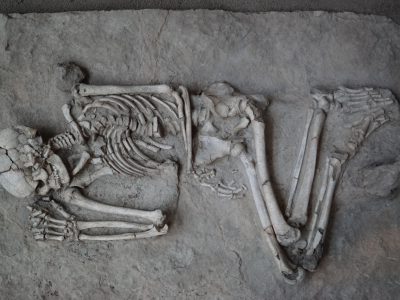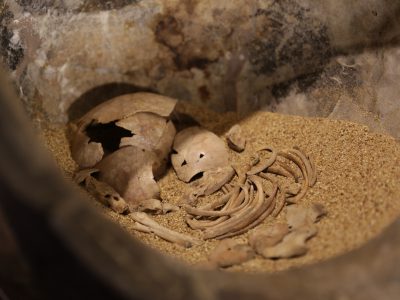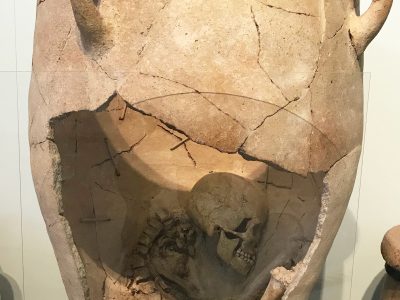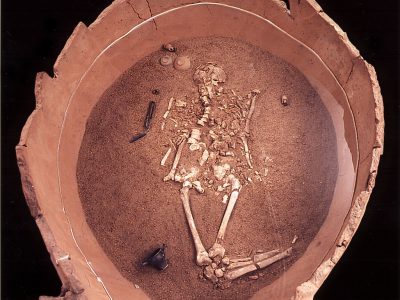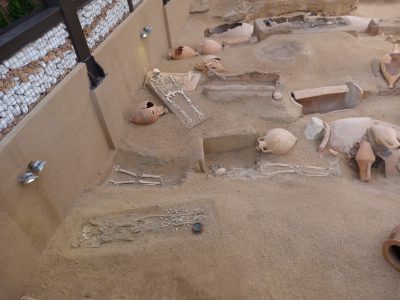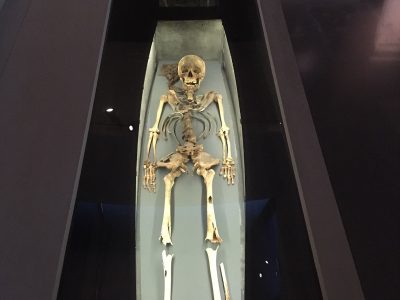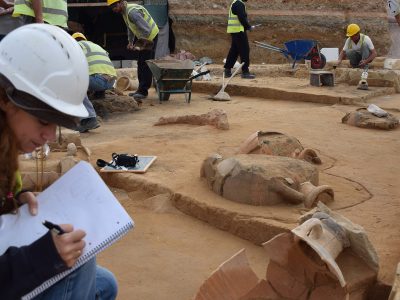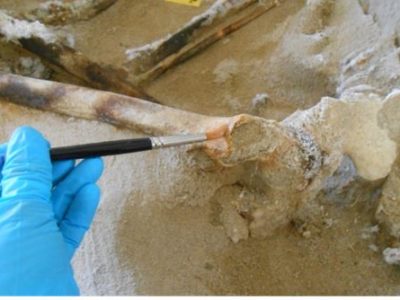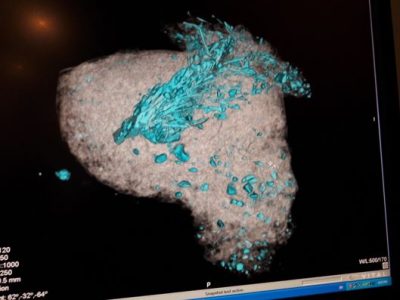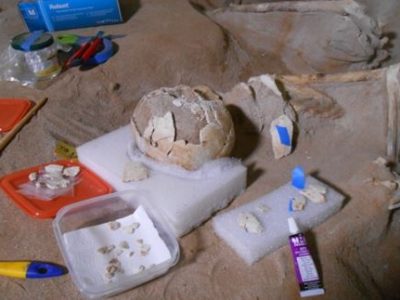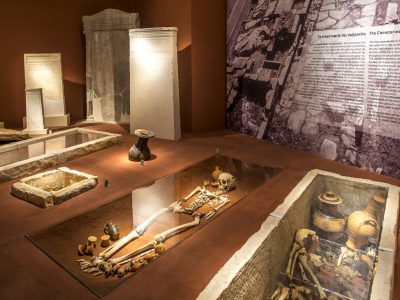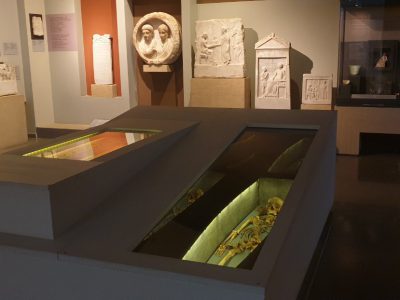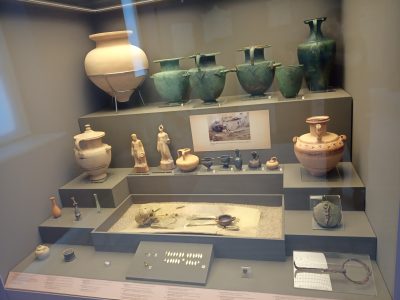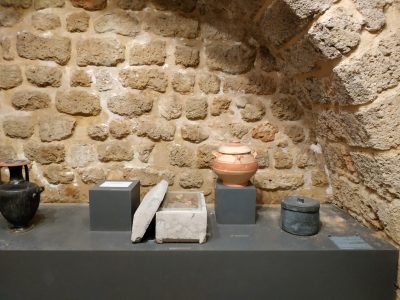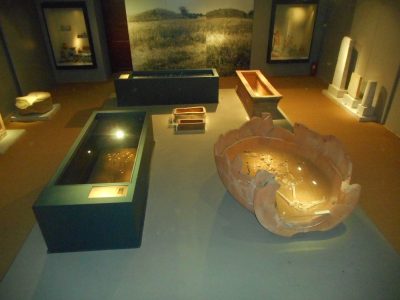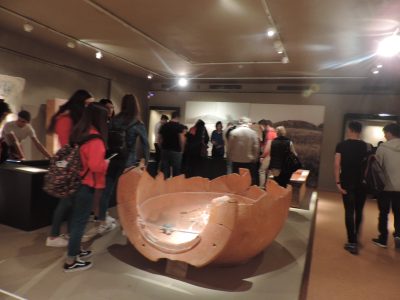Thematic sections
1st Thematic section
Human remains. Definition, significance and contribution towards the reconstruction of the past
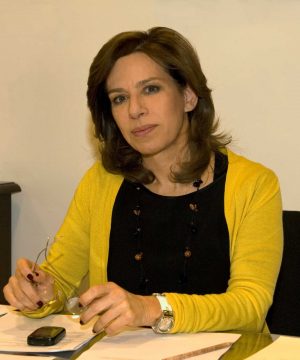
Anastasia Lazaridou
Dr Archaeologist
Directorate of Archaeological Museums, Exhibitions and Educational Programmes, Hellenic Ministry of Culture and Sports, Director
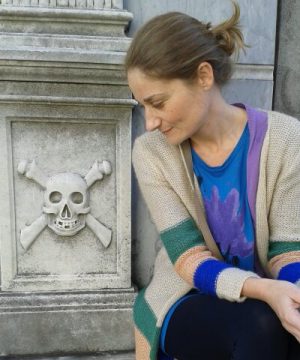
Chryssa Bourbou
Dr Bioarchaeologist
Ephorate of Antiquities of Chania, Hellenic Ministry of Culture and Sports Post-doctoral researcher in the University of Fribourg, Switzerland
2nd Thematic section
Non omnis moriar, multaque pars mei vitabit libitinam (Horace, Odes ΙΙΙ: 4). Human remains and current theoretical approaches
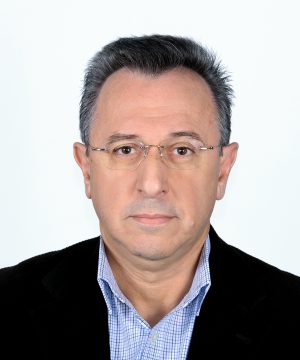
Stavros Yangazoglou
Assistant Professor of Dogmatics
National and Kapodistrian University of Athens, School of Theology Department of Theology
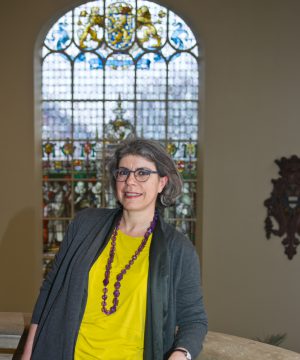
Sofia Voutsaki
Professor of Greek Archaeology
Director of Studies, Research Master Archaeology, Groningen Institute of Archaeology
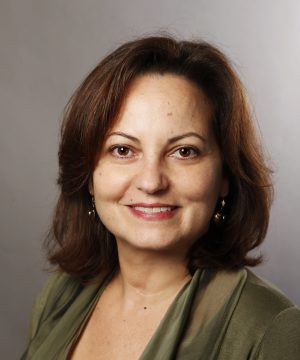
Anna Lagia
Research Associate
University of Freiburg, Department of Biological Anthropology
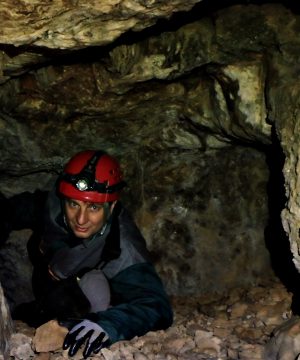
Andreas Kapetanios
Assistant Professor of Archaeology
Ionian University, Department of History

Marlen Mouliou
Assistant Professor of Museology
National and Kapodistrian University of Athens, School of Philosophy, Department of History and Archaeology
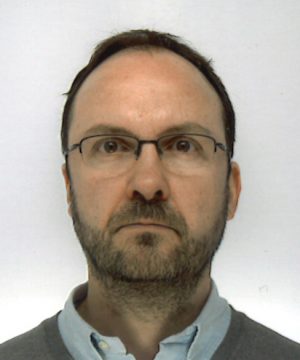
Dr Daniel Antoine
Curator of Bioarchaeology
The British Museum, Department of Egypt and Sudan

Dr Reine-Marie Bérard
Archaeologist-Researcher
Centre National de la Recherche Scientifique, Aix Marseille University, Centre Camille Jullian

Dr Wiebke Ahrndt
Ethnologist
Übersee-Museum Bremen, Director

Elena Kountouri
Dr Archaeologist
Directorate of Prehistoric and Classical Antiquities, Hellenic Ministry of Culture and Sports, Director

Constantina Benissi
Archaeologist
Directorate of Prehistoric and Classical Antiquities, Head of the Department for the Supervision of Greek & Foreign Scientific Institutions and Coordination of International Cooperation & Organisations, Hellenic Ministry of Culture and Sports

Rania Charalampopoulou
Archaeologist
Directorate of Prehistoric and Classical Antiquities, Department for the Supervision of Greek & Foreign Scientific Institutions and Coordination of International Cooperation & Organisations, Hellenic Ministry of Culture and Sports
3rd Thematic section
From the excavation … to the museum. Ethics and management of human remains in archaeological collections
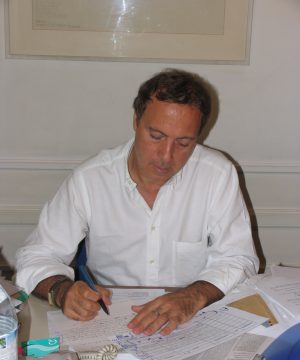
Nikolaos Stampolidis
Professor
University of Crete, Director of the Museum of Cycladic Art
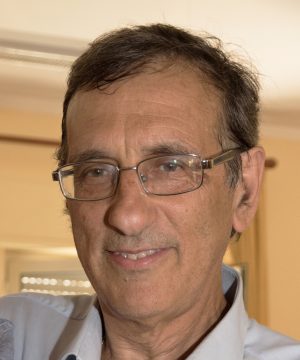
Dr Stefano Vassallo
Archaeologist
Region of Sicily, Archaeological Service of Palermo

Stella Chrysoulaki
Dr Archaeologist
Ephorate of Antiquities of Piraeus and Islands, Hellenic Ministry of Culture and Sports, Director
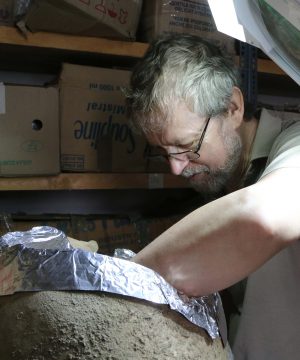
Simon Hillson
Professor of Bioarchaeology
University College London, Institute of Archaeology

Charikleia Fantaoutsaki
Archaeologist
Ephorate of Antiquities of Dodecanese, Hellenic Ministry of Culture and Sports
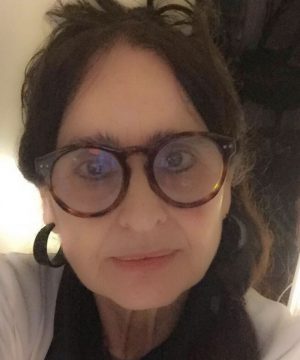
Effie Poulaki-Pantermali
Archaeologist
Honorary Director of the Hellenic Ministry of Culture and Sports

Sophia Koulidou
Archaeologist
Ephorate of Antiquities of Pieria, Hellenic Ministry of Culture and Sports

Evaggelia Alvanou
Archaeologist
Ephorate of Antiquities of Pieria, Hellenic Ministry of Culture and Sports

Paraskevi Tritsaroli
Dr Palaeoanthropologist
Independent Researcher
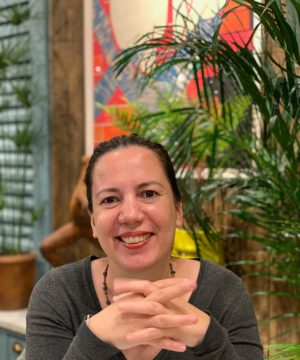
Ioanna Moutafi
Dr Bioarchaeologist
University of Cambridge, The McDonald Institute for Archaeological Research

Stefanos Keramidas
Archaeologist-Museologist
Ephorate of Antiquities of Cyclades, Hellenic Ministry of Culture and Sports

Panagiotis Karkanas
Dr Geoarchaeologist
American School of Classical Studies at Athens, The Malcolm H. Wiener Laboratory for Archaeological Science, Director

Evangelia Kiriatzi
Dr Archaeologist
The British School at Athens, The Marc and Ismene Fitch Laboratory for Science-based Archaeology, Director

Niki Papakonstantinou
Research Associate
The British School at Athens, The Marc and Ismene Fitch Laboratory for Science-based Archaeology

Tania Gerousi
Archaeologist
School Administrator, The British School at Athens
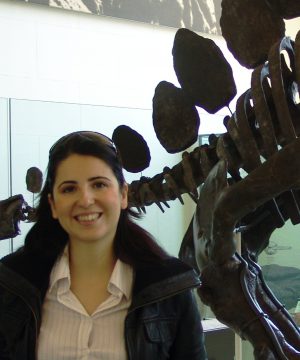
Christina Papageorgopoulou
Associate Professor
Democritus University of Thrace, Department of History and Ethnology
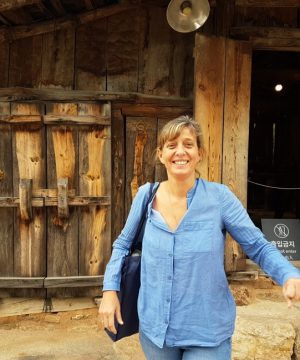
Maria Mertzani
Conservator of Antiquities
Directorate of Conservation of Ancient and Modern Monuments, Hellenic Ministry of Culture and Sports, Director
4th Thematic section
Current trends in the exhibition and interpretation of human remains
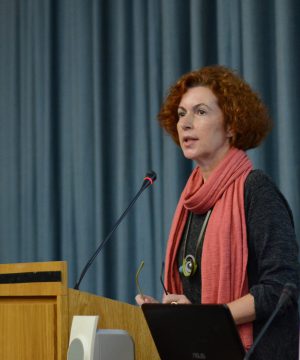
Andromache Gazi
Associate Professor of Museology
Panteion University of Social and Political Sciences, Athens, Department of Communication, Media and Culture
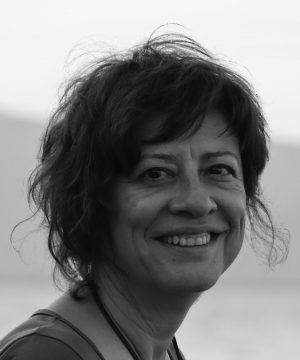
Nassia Chourmouziadi
Associate Professor of Museology
University of the Aegean, Department of Cultural Technology and Communication
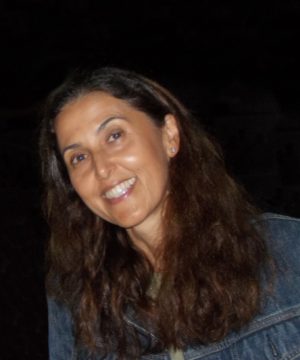
Elena Glytsi
Archaeologist-Museologist
Directorate of Archaeological Museums, Exhibitions and Educational Programmes, Hellenic Ministry of Culture and Sports

Eleni Zgouleta
Archaeologist
Directorate of Archaeological Museums, Exhibitions and Educational Programmes, Hellenic Ministry of Culture and Sports
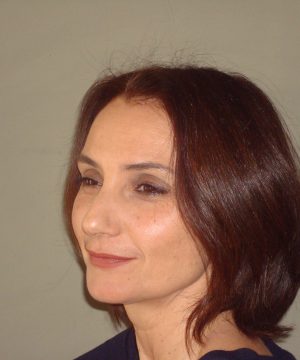
Angeliki Koukouvou
Dr Archaeologist
Thessaloniki Archaeological Museum, Department of Exhibitions, Communication and Education, Head of the Department
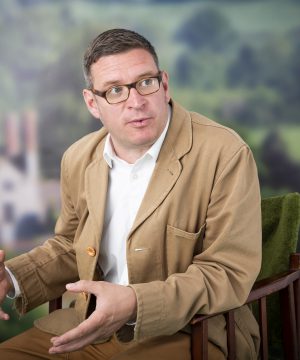
Dr Matt Thompson
Head Collections Curator
English Heritage

Kali Tzortzi
Assistant Professor of Museology
University of Patras
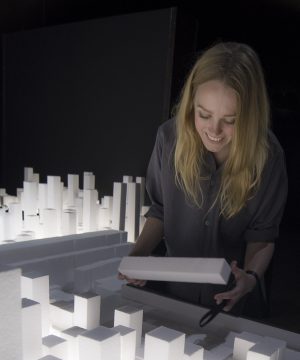
Emily Hall
Director
Barker Langham, Berlin Branch Office
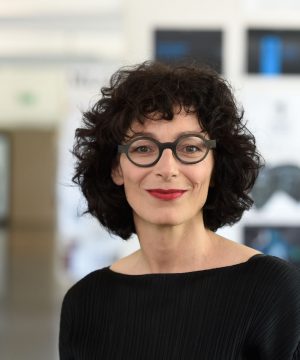
Shirin Frangoul-Brückner
Managing Director
Atelier Brückner GmbH
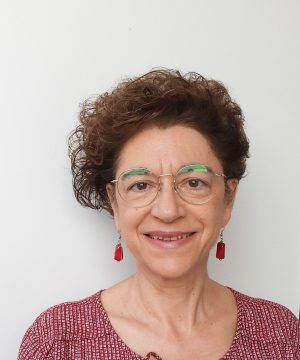
Constantina Kallintzi
Dr Archaeologist
Ephorate of Antiquities of Xanthi, Hellenic Ministry of Culture and Sports, Director

Jelena Bekvalac
Curator of Human Osteology
Museum of London, Centre for Human Bioarchaeology

Dr Ioannis Kompatsiaris
Deputy Director
Centre for Research and Technology, Information Technologies Institute

Eleftherios Anastasovitis
Research Assistant
Centre for Research and Technology, Information Technologies Institute
THE CONFERENCE’S ROUND TABLES: THE GREEK CASE
In Greece, a country with an outstanding archaeological heritage, human remains come constantly to light in great numbers, often ending up in the archaeological museums of today. However, contrary to other countries, in which the outburst of claims for the repatriation of human remains to the countries of origin has imposed the development of a legal framework, in Greece such a necessity has never existed; thus, there has not developed yet a constitutional framework for the management of archaeological human remains, much more for their display and interpretation.
Naturally, the field archaeologist, the conservator, the curator, the museologist and the architectural designer turn for guidance to the Greek Archaeological Law in force, as well as to the ICOM Code of Ethics for Natural History Collections (2013), while they often oscillate between the remains’ consideration as biological samples, archaeological finds or highlight exhibits.
The two round tables seek to demonstrate aspects of the Greek case with reference to the management and display of human remains. The Greek institutional framework for archaeological human remains, their treatment in excavation or the particularities of their presentation in the Greek archaeological museums are only a few of the issues to be discussed.
Issues of institutional framework, ethics and management of human remains in Greek museum collections
Necessity for the development of a distinct legal framework and a code of ethics for the management and display of archaeological human remains.
Necessity for the processing of the current Greek Law on the Protection of Antiquities and Cultural Heritage (Law 3028/2002) with supplementary clauses pertaining to the management of archaeological human remains.
Necessity for the establishment of a National Registry for the documentation of all human remains either displayed at the Greek archaeological museums or stored in the Ephorates of Antiquities around Greece.
Management of human remains within the framework of excavations. Ideal conditions and tough reality. Necessity for the development of a good practices policy for the management of human remains on excavation sites and in storage rooms.
Μanagement of human remains dated to the Byzantine period (4th – 15th century A.D.) by the Greek archaeological museums.
Management, display and interpretation of human remains from mass graves, particularly when these relate to a specific and well-documented historical event.
Ιssues of display and interpretation of human remains in Greek archaeological museums
Displaying human remains in permanent or temporary archaeological exhibitions: Yes, no, or under conditions?
Museum visitors and their perception of human remains. Should visitors’ views on the subject be considered? Design solutions.
Suggestions for other thematic sections, in addition to that of burial practices, in which human remains can be used as exhibits.
New technologies as an interpretive tool for the display of human remains in museums.
